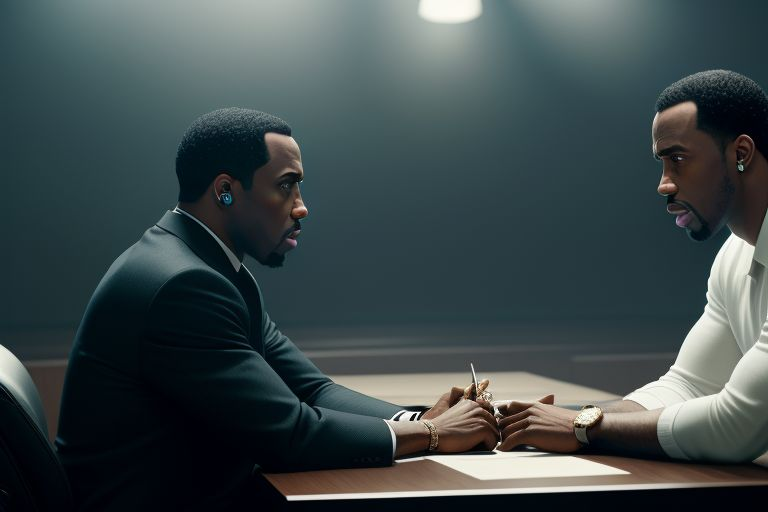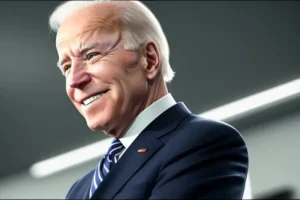Summary
Diddy Drama: A lawyer representing accusers of Sean "Diddy" Combs has revealed that a hotline for victims received a staggering 12,000 calls in just 24 hours. Yes, you read that right—12,000!
Victim Support: This massive influx of calls highlights the critical need for support systems for victims coming forward, and it raises some serious questions about celebrity culture and accountability.
Cultural Shockwaves: The ramifications of such a moment—both for Diddy and the broader entertainment industry—could change the narrative around accountability among celebrities.
The Diddy Drama: A Hotline Buzzing with Activism
So, grab your popcorn, because the latest chapter in the ongoing saga of Sean "Diddy" Combs is nothing short of sensational. Recently, a lawyer representing accusers of the hip-hop mogul announced that a hotline set up for victims received an absolutely jaw-dropping 12,000 calls in just 24 hours. Yeah, 12,000! It’s like the gossip mill kicked into overdrive, and this time it’s impacting way more than just the tabloids.
Why such a wild surge? It seems that people are not just talking— they’re ready to act. In an era rife with scrutiny over celebrity behaviors and the culture of silence surrounding accusations, this figure feels monumental. But before we dive deeper into the implications, let’s break down what this really means.
What’s Happening?
The Hotline: Launched by the lawyer representing Diddy accusers, it aims to provide resources and support for victims of abuse and harassment.
The Calls: 12,000 calls in merely a day? That’s a record in anything, and it sparks questions. Are there that many victims? Are people feeling empowered to speak out, or is it just the allure of celebrity scandal that gets them grabbing the phone?
Public Discourse: This situation has opened a floodgate of conversation. As more people find their voices, society grapples with accountability and the consequences of power dynamics in entertainment.
Victims Finding Their Voices
Let’s get a bit more personal here. The surge in calls is more than numbers on a spreadsheet—it’s human lives. Each call represents a story, a struggle, and a desire for justice. So, who’s really calling? Here are some possible profiles:
Former Associates of Diddy: People who worked closely, perhaps feeling the pressure or fear for speaking out during their careers.
Victims of Abuse: Individuals inspired by the courage of others—this could very well be their moment to speak out against a powerful figure.
Curious Bystanders: Let’s not kid ourselves; some might simply want to join the conversation, to see what "the fuss" is all about.
Why Now? A Perfect Storm
So why is this happening now? Here’s a mind-blowing mix of factors:
Cultural Shift: Society is beginning to recognize the importance of believing victims. Trends in social media activism and movements like #MeToo are pushing people to disclose their experiences.
Celebrity Influence: Diddy’s larger-than-life persona means that any hint of scandal catches the attention of just about everyone. It’s like a magnet attracting other stories.
Hotline Accessibility: With just a phone call, individuals can access support and guidance—enabling those who may have felt restrained before to finally step forward.
The Ethics of Celebrity Accountability
Speaking of stepping forward, isn’t it worth questioning why it took so long for people to speak out? Here’s where we get to the nitty-gritty and examine the ethics behind celebrity culture:
Power Dynamics: Celebrities often operate in a realm where their power creates a culture of silence. This is a massive imbalance, where victims feel they have too much to lose.
Public Reaction: How do we, as a society, respond when accusations fly? Do we rush to conclusions, or do we strive for fairness?
Future Movements: The fallout of this situation could ripple through the entertainment industry—potentially making it safer for those who feel they cannot speak out against authority figures.
Community Impact
With a hotline ringing like it’s a morning radio show, you can imagine the impact on community conversations. People are discussing, sharing, and questioning—so how does this translate to real-world change?
Here’s What Could Happen:
Increased Reporting: It’s a snowball effect; as stories come to light, more victims might feel empowered to report their experiences.
Policy Changes: Organizations may be prompted to rethink their guidelines surrounding harassment and abuse, fostering safer workplaces.
Support Groups: Community support for victims could expand, leading to more organized attempts at healing and justice.
A Cultural Shift: The Impact on Public Figures
This kind of moment tends to send shockwaves through the celebrity ecosystem. So what happens next?
Public Figures Under Scrutiny: The spotlight will shine brighter on those in power positions, as industry insiders and the public begin to ask tougher questions.
Re-evaluation of Relationships: Fans might reconsider their loyalty to artists or actors who don’t align with evolving standards of accountability.
Activism and Celebrity: The rise of politically and socially aware celebrities isn’t just a trend; it seems like a necessary evolution.
Navigating the Unknown: Potential Long-Term Changes
As much as today’s news might feel like the peak of the mountain, we can’t ignore that it might just be the beginning. Let’s consider some possible long-term effects:
Shifting Power Structures: If people continue to come forward, we might be looking at a reshaping of power in the entertainment industry.
Media Responsibility: Journalists and media outlets will have to grapple with how they report these kinds of stories—accuracy and sensitivity will become paramount.
A More Informed Public: As conversations swirl, more people become aware of these issues, potentially leading to societal change beyond just interactions with celebrities.
Personal Testimonies: Real Stories Matter
Stories matter. When we hear from those who have experienced hardship, it adds layers to our understanding. Let’s take a look at how testimonies can shape our perspective.
| Type of Testimony | Impact | Example |
|---|---|---|
| Public Testimonies | Raises awareness on a larger scale | High-profile court cases |
| Anonymous Calls | Provides a safe space for victims to share experiences | Hotline calls |
| Community Groups | Fosters healing and support among victims | Support circles or meetings |
The Art of Listening
If anything has come from this sensational surge of hotline calls, it’s the art of listening. Whether it’s through a hotline or a casual chat over coffee, sometimes all individuals need is someone to hear them out.
Rhetorical Moment: What if you found yourself in a situation where your voice felt muted? Wouldn’t you want a platform where you could express your truth?
Final Thoughts: Bridging the Gap
In conclusion, the 12,000 calls to the hotline initiated by the lawyer for Diddy’s accusers is noteworthy for its sheer volume, but it’s essential to remember it’s also a reflection of something much deeper. As we navigate these waters, let’s challenge ourselves to think about:
What changes still need to happen for victims across the board?
How can we assist in creating a culture of zero tolerance for abuse in not just the entertainment industry, but everywhere?
With the echo of the hotline’s ringer still resonating, it’s clear that this moment could just be a stepping stone toward necessary conversations about responsibility, accountability, and the courage it takes to come forward. So grab your phone, dial that hotline if you need to, or just talk about it with friends—because this isn’t just Diddy’s drama. It’s everyone’s conversation, and it’s just getting started.



